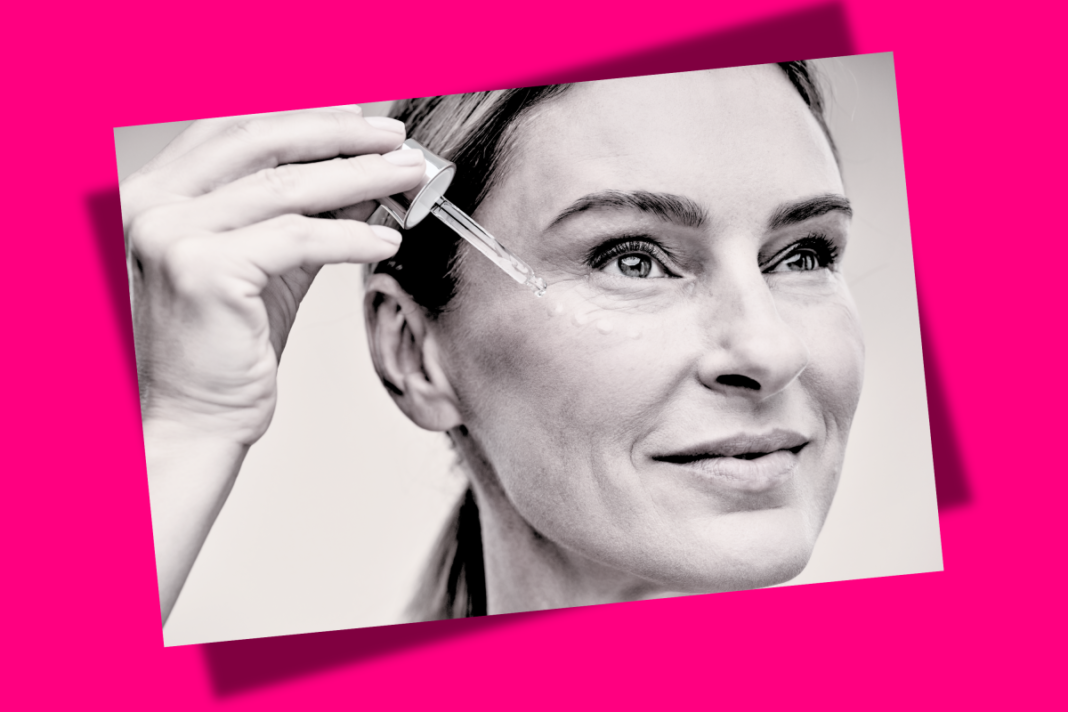“Does retinol really work?” is a question I’m often asked as a beauty editor. Retinol is one of those buzzy anti-aging skin-care ingredients beauty influencers talk about a lot on social media, even if it’s not always clear to lay people what they’re talking about. For those who’ve been confused by what exactly retinol is (like me!), here’s the deal: Retinol is one of many vitamin A compounds that are known as retinoids. In the past decade, these skin-resurfacing agents have become omnipresent in anti-aging circles so much so that prescription Retin A (another retinoid, known more commonly by its generic name, Tretinoin) is now, according to dermatologists, a skin-care must-have for anyone looking to slow the march of time.
Does retinol really work?
In terms of whether or not retinoids “work,” the short answer is YES. Yes, it can help reduce the appearance of fine lines and wrinkles; yes, it can help brighten dark spots; yes, it can make your skin look tighter and firmer. “The only scientifically proven skin-care ingredient to improve [the appearance of] fine lines and wrinkles is Retin A,” explains facial plastic surgeon Dr. Kay Durairaj, “It’s the most potent and strongest version of vitamin A that’s topically applied, that was studied more than 40 years ago and was the original, the number-one and only researched skin-care ingredient that has proven efficacy and benefit.”
While most doctors agree that prescription Retin-A is the most effective of all the retinoids, it can also be extra harsh on sensitive skin. In fact, some users may never tolerate it at all, which is where the more gentle, over-the-counter retinol comes in. “Retinol can actually improve skin tone, reduce wrinkles and fine lines and increase collagen with consistent use,” says Kimberly Austin, aesthetician at the 7QSpa (where, FYI, Kim Kardashian is a client). For those ready to dip their toes in the retinoid waters, high-quality retinol serums are a great starting place. “There are many over-the-counter [retinols] that are effective,” says Beverly Hills dermatologist Dr. Ava Shamban. “Even in a low to moderate strength, retinol will increase collagen production and reduce the breakdown of existing collagen in our skin.”
How does retinol work?
Clinical studies on the efficacy of retinol show that retinoids act as a natural exfoliant for the skin, causing cell turnover and reducing the appearance of fine lines and wrinkles along the way. Retinol additionally stimulates the production of collagen, a protein that helps keep our skin firm and bouncy. “Collagen is the most abundant and important protein in the skin,” explains Durairaj. “After age 40, you’re losing 1% of your collagen production per year. And by menopause, you could be losing 25% of the collagen you make, the factory just starts shutting down production.”
Should I try retinol or prescription Retin-A?
Prescription Retin-A may be both stronger and work a bit faster than retinol — but it comes at a comfort cost. Particularly in early use, Retin-A is likely to cause irritation, itchiness and even peeling, burning and significant skin dryness and may never be mild enough for certain skin types. By comparison, retinol is more gentle to the skin, though its effects may not be as fast. If you’re new to retinoids, and you’d like to see for yourself if and how they work, the following products have been both recommended by dermatologists and vetted by our beauty team — not to mention, each is wildly well-reviewed online.
CeraVe
If you’re completely new to the retinol game or if you have dry skin, CeraVe’s formula is a good place to start. It contains just a .3% concentration, which means it will be more gentle and less drying than higher-potency products. It’s also filled with skin-calming agents like niacinamide and moisturizing hyaluronic acid. Plus, it rings in at less than $20, a price that allows you to try the product without the guilt of a major skin-care investment.
$19 at Amazon


SkinMedica
SkinMedica’s retinol serum is perfect for those with the kind of robust skin that easily tolerates new products or have already used a lower-concentrate retinol and feel ready to graduate to something more potent. It comes highly recommended by dermatologists and aestheticians (many even sell it out of their offices) and is among the best I myself have tried.
SkinMedica is a trusted brand, known for its top-quality, effective skin care formulas. Its retinol complex in particular has a lot going for it, including the addition of bisabolol, an ingredient proven to soothe skin and bring down inflammation, along with antioxidants that help with the redness and peeling that can initially come with a more potent retinoid. Best of all for true retinol heads, is the .5% concentration which is among strongest you can buy over the counter.
$80 at Amazon
Peter Thomas Roth
This product hits the serious octane retinoid serum sweet spot: At 1.5% retinol concentration, it’s incredibly potent, while not so strong that your face will start molting within the first week of use. That’s because it’s made with 8-hour slow-release microencapsulated retinol, which tends to be less irritating, and also because it’s brimming with skin brighteners like vitamin C along with healing emollients vitamin E and squalane, which help keep your face hydrated while soothing redness.
The texture of this serum is particularly standout: It’s silky and smooth, as opposed to tacky and viscous. When I used this product last year for three months, I saw an almost immediate skin-tightening effect. Over the weeks there was more clarity in my skin tone and the lines in my forehead appeared less deep.
It’s difficult to choose a retinol serum that will work “best” for all skin types, but with its high-quality ingredients and thoughtful formulation, this one comes closest to being a one-size-fits-most skin-care star.
$65 at Amazon


